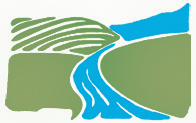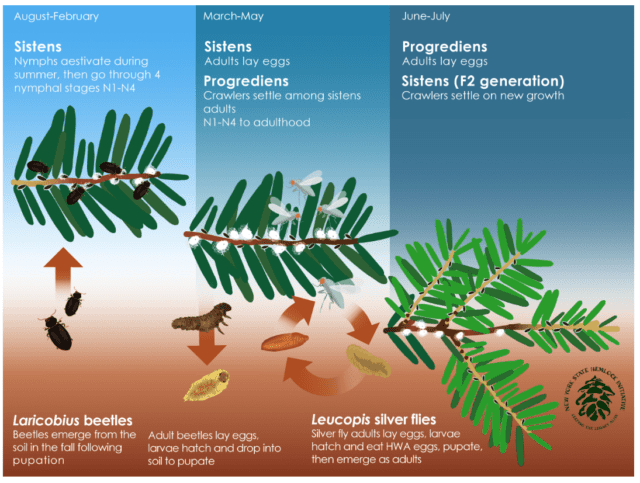Join the Hemlock Woolly Adelgid (HWA) Winter Mapping Challenge and win prizes! From Feb 1 – March 15, 2023, the iMap user who surveys the most sites* for HWA during the challenge wins a prize from the NYS Hemlock Initiative. Visit https://www.nyimapinvasives.org/hwa for more information and to get started.
1. Get outside and look for hemlock trees.
2. Check for white fuzz balls on the undersides of hemlock twigs – these are HWA egg masses.
3. Report your findings to iMap – submit a presence or not-detected record to document your effort.
#hwa #imapchallenge #imapinvasives #communityscience #citizenscience #maps #nyoutside #recreatelocal #insects #entomology #invasivespecies #winter #hiking

 The New York State Hemlock Initiative represents the efforts of scientists, natural resources professionals, and New York residents united in their love for hemlock trees and dedication to
The New York State Hemlock Initiative represents the efforts of scientists, natural resources professionals, and New York residents united in their love for hemlock trees and dedication to